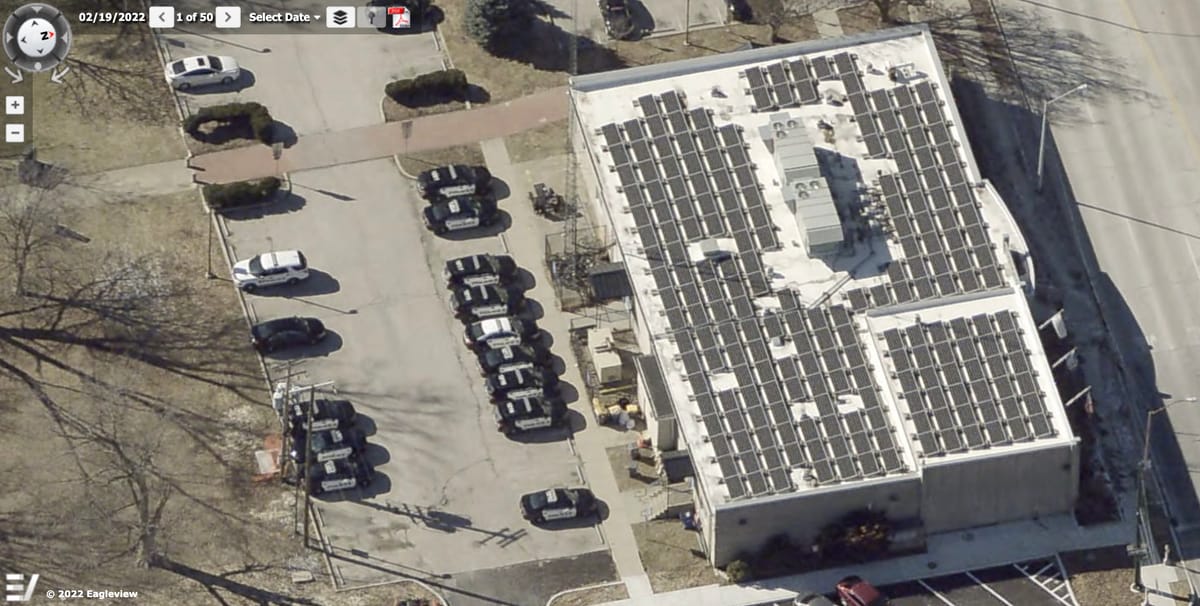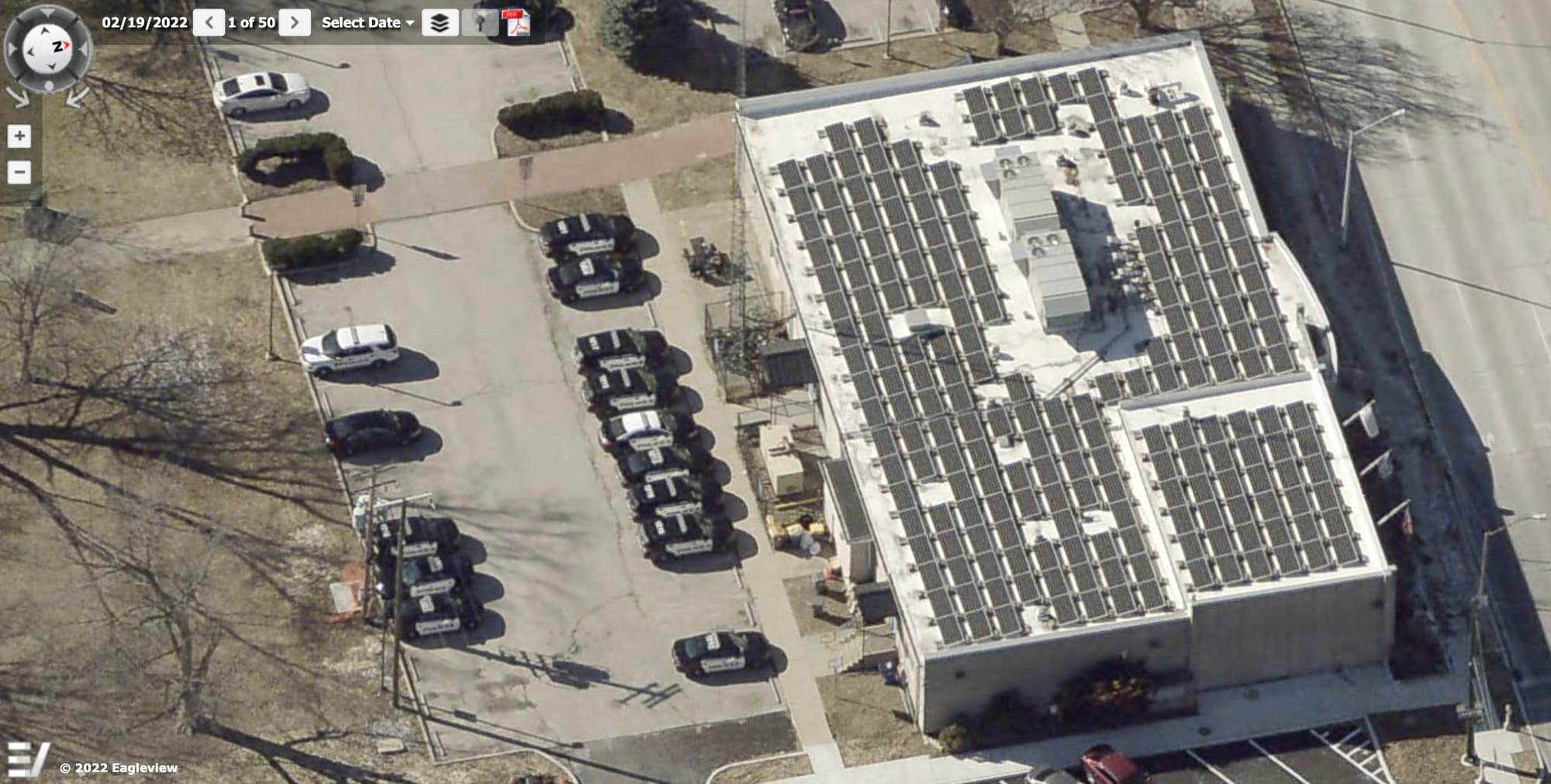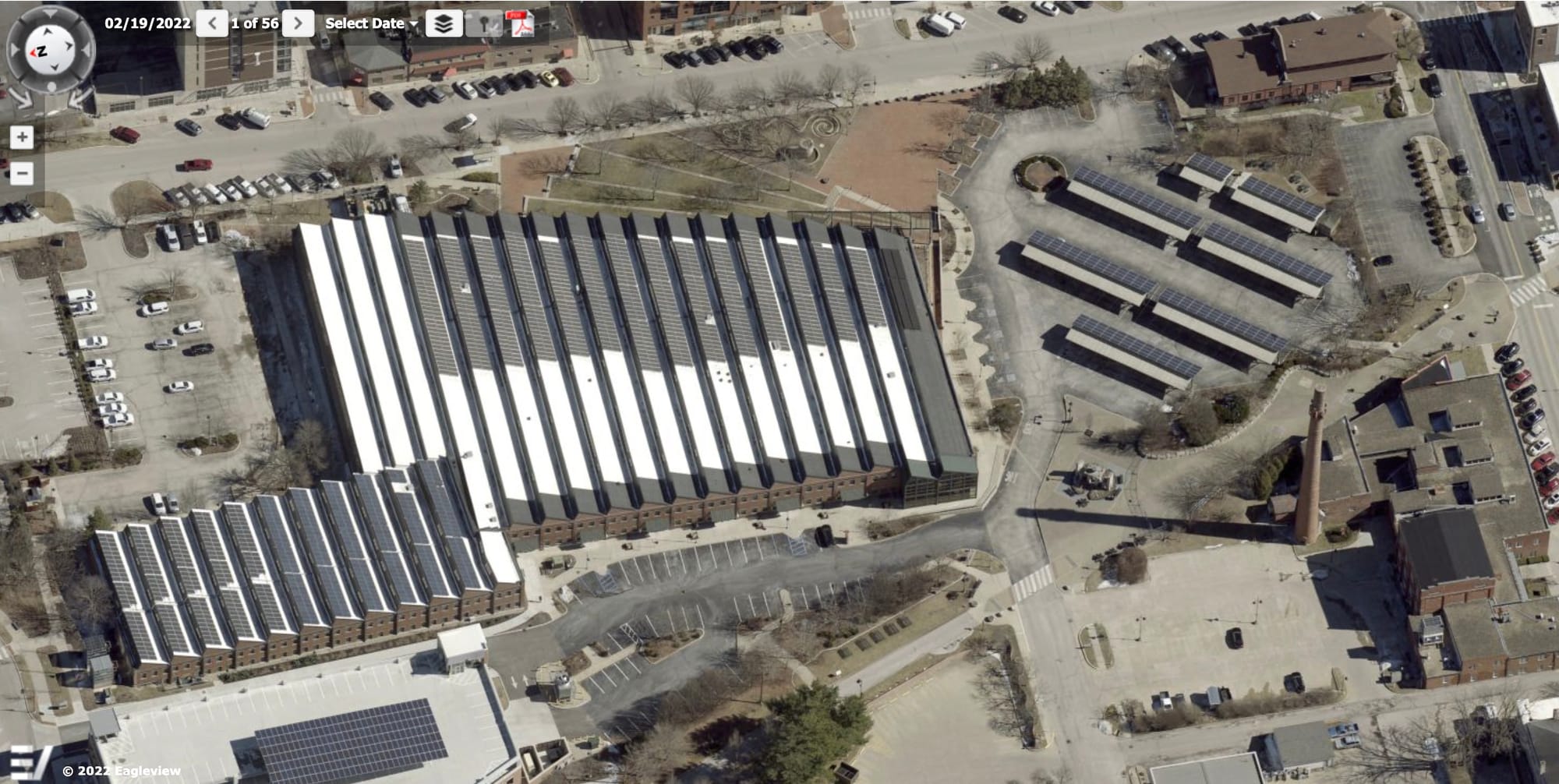2023 Bloomington budget notebook: Parking cashouts, cop cars



The methods used by city employees to get to work have surfaced in two ways during recent Bloomington city council deliberations on the 2023 budget.
First, for city hall employees, mayor John Hamilton has already implemented a parking “cashout” program for the second half of 2022. It’s supposed to encourage employees to find a different way to arrive at work than driving a car by themselves—by giving them a $250 reward for not purchasing a city hall parking permit.
Parking permits for the city hall lot have historically cost $2 annually.
The parking “cash out” program, for the whole year, is also a part of the 2023 budget, and will reward employees who don’t purchase a parking permit, by giving them a $500 payment.
Second, Hamilton got a push from some councilmembers at the first reading of the 2023 budget, which came on Sept. 28, to allow Bloomington police officers to take their squad cars home.
That would mean a change from the administration’s current policy, which is to allow just those officers who live inside the city limits—or who are part of an on-call response team—to take their squad cars home.
Councilmembers who want to allow police officers to use their squad cars to get to and from work, and for other purposes during off-duty time, see it as maintaining parity with other police departments. It’s part of their ongoing worry about the retention and recruitment of Bloomington police officers.
How many employees are impacted by these programs?
Parking “cashout”
At a late August presentation, human resources director Caroline Shaw gave city councilmembers an update on this year’s implementation of the change to the city hall parking lot permit system.
According to Shaw, 181 city hall employees were eligible for the cashout. Of those, 17 have received the $250 incentive payment, for not purchasing a permit for the city hall parking lot.
Shaw said about 40 percent of city hall employees live inside city limits.
How many of the 17 employees who received the $250 incentive payment are “converts”—that is, people who did not already, walk, or bicycle, or bus, or carpool or have some other way of getting to work besides driving by themselves?
Responding to a followup question from The B Square, Shaw wrote in an email that the application for the parking “cashout” did not collect the kind of information that would allow the city to measure the number of converts.
Take-home cars for police officers
Two weeks ago, when the 2023 budget got a first reading, councilmember Ron Smith said he agreed with his colleagues Susan Sandberg and Dave Rollo about the importance of allowing Bloomington police department (BPD) officers to take their patrol cars home.
Smith reported anecdotal support from BPD that take-home patrol cars are among the top incentives that other agencies in the surrounding area are offering their officers in order to retain them. Allowing officers generally, not just those who live inside city limits, to take their cars home seemed to Smith like a step that Bloomington could take to compete with other departments that are geographically close.
The current year’s budget (2022) includes 105 sworn positions. At last count, BPD employed just 81 sworn officers.
On Sept. 28, when the 2023 budget got a first reading, Bloomington police chief Mike Diekhoff indicated that there were roughly enough cars to go around, if all officers were allowed to take their car home. But at that time Diekhoff did not have precise numbers within arm’s reach.
Responding to a followup question from The B Square, Diekhoff gave the following breakdown for the BPD fleet: There are about 75 vehicles, Diekhoff wrote in an email. Of those, 27 are in the take-home car program for in-city and on-call officers and 28 are in the fleet for shift work. Another 14 cars are for investigations and 6 are for administration.
Diekhoff added that spare cars are necessary because of supply chain delays. As an example, BPD ordered new cars in February, but that order was just canceled. So the cars will have to be reordered in January.
At the first reading, Rollo concluded that allowing take-home cars would be relatively cost neutral—from the point of view of capital cost to acquire additional vehicles. Councilmember Steve Volan countered that it would be an empirical question to measure whether the impact were actually cost neutral—given the additional mileage that would be put on cars. Volan was interested in some kind of pilot program to gauge the cost impact.
One of the benefits that is generally touted for take-home squad cars is that an officer will take better care of a take-home car than one from the fleet pool—because it’s the car they always drive.
Based on the back-and-forth between Rollo and Hamilton at the Sept. 28 city council meeting, Hamilton is not keen to give up the idea of restricting take-home cars to just those officers who live inside the city limits. The idea is to give officers an incentive to live in Bloomington.
About take-home squad cars for police officers, Rollo asked Hamilton, “Is this something that you would be willing to do?” Hamilton replied, “We do—we do allow police officers who live in the city to have their squad cars, as well as those who are outside the city who are part of particular appropriate needs.”
Rollo pressed the point, by asking if Hamilton would be willing to allow officers who live outside the city to take their squad cars home. Hamilton replied that as far as officers who live outside of city limits: “We allow our police officers who are part of certain programs, such as CIRT [crisis incident response team], etcetera, and other programs to have cars.”
Hamilton added, “We are sensitive to that issue. But the general question, I completely affirm that we are continuing to work very hard to offer the police department all the support…”
Oct. 12, 2022 city council meeting
The 6:30 p.m Bloomington city council meeting set for this Wednesday could theoretically result in a final vote by the council to adopt the 2023 budget. But based on the deliberations at the first reading, councilmembers are more likely to put off their vote.
If the vote is postponed, a likely date to take up the 2023 budget for a final vote would be a week later, on Oct. 19.
The city council has to adopt a new budget by the end of the month, or else the current year’s property tax levy remains the same in 2023 as it was for this year.




Comments ()